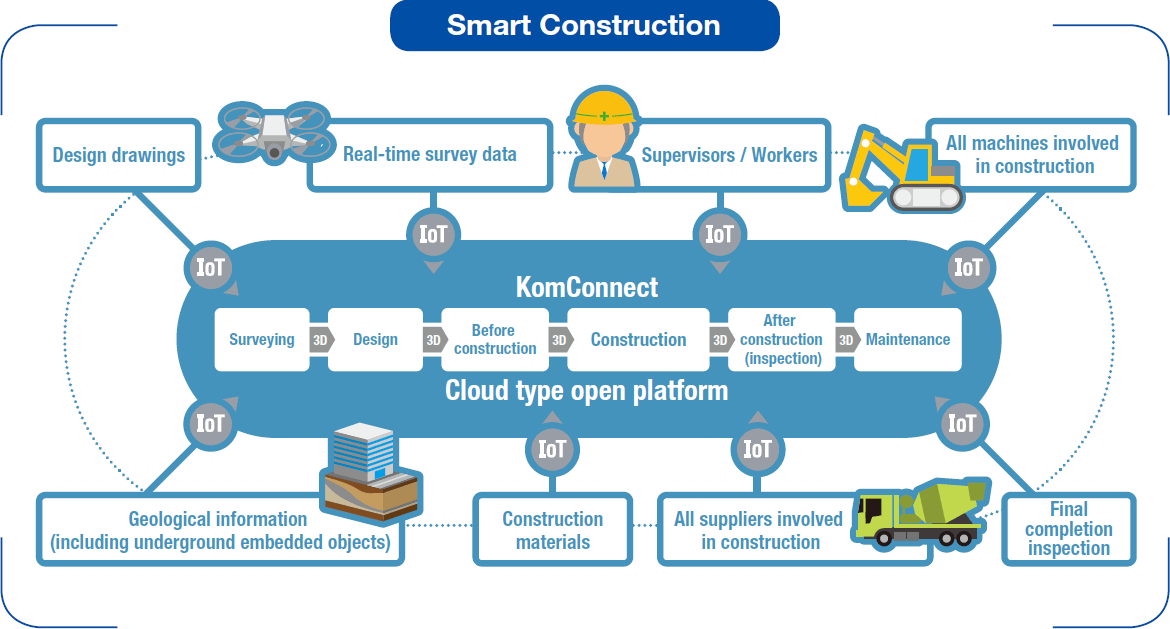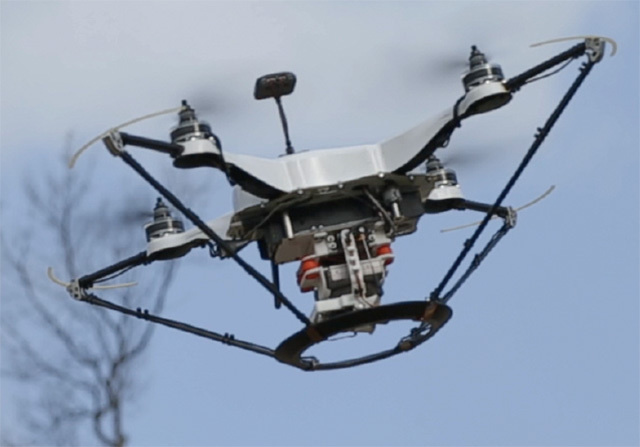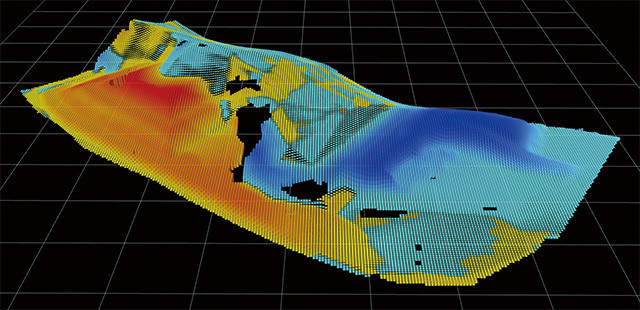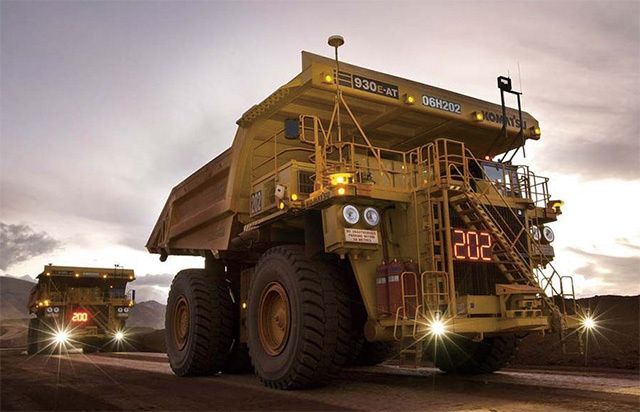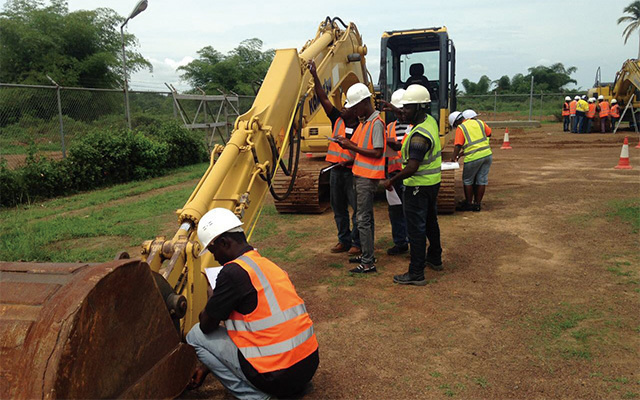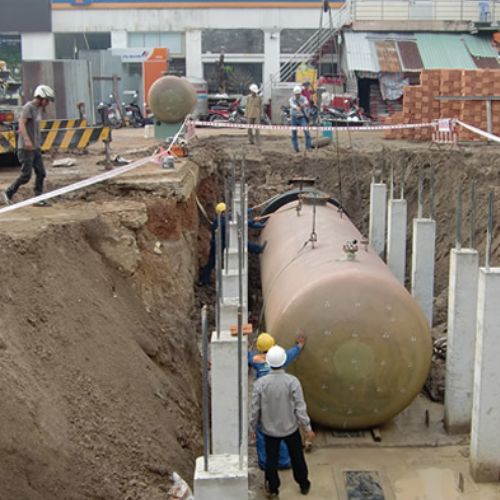As with many developed countries, Japan is facing a decline in its working-age population. By 2025, the number of workers at construction sites is expected to decline by 1.3 million, creating an urgent need for improvement in productivity. With this in mind, the Japanese government is working together with private enterprises to implement new construction technology using ICT (Information and Communication Technology) throughout the industry. In 2015, Japan’s Ministry of Land, Infrastructure, Transport and Tourism announced its new “i-Construction” standard for surveying, construction and other tasks that utilize 3D data. To realize a world-leading “Super Smart Society” (Society 5.0), the Japanese government and construction industry are currently working as one to achieve ICT-driven technological innovation.
A stand-out leader in this innovation is Komatsu, the construction machinery largest share of the world market. Since 2002, the company has equipped all of its construction machinery with wireless communication, allowing data from the equipment to be monitored and managed using its KOMTRAX management system. Using the sensors installed in the machinery, the system collects information including location, operation status and fuel level to effectively manage operations, optimize fuel usage, anticipate machine trouble, and more.
What's more, in 2008, Komatsu integrated new ICT technology into its construction machinery with the development of its Autonomous Haulage System (AHS), the world’s first unmanned operation system for superlarge dump trucks. Then in 2015, the company launched its “Smart Construction” platform which uses ICT to organically connect not only the construction machinery, but all stages of the construction process, and achieve overall optimization.
Power of Innovation
Bringing Innovation to the Worksite with“ Smart Construction”
“AHS” is a system that uses GPS along with a gyroscope for detecting angle and speed and combines it with technology such as laser guidance to remotely control unmanned super-large dump trucks. The system is in use at the Chuquicamata copper mine in Chile and the Yandicoogina iron mine in Australia.
Komatsu’s CSR efforts extend around the world, taking part in antipersonnel mine removal in countries such as Cambodia, Laos and Afghanistan, as well as disaster recovery aid in nations including Brazil and the Philippines. Komatsu is also contributing to human resources development in various regions; for example, the company is assisting the rapid infrastructure development of Liberia by supporting the operation of a training facility for construction machinery operators.
One of the benefits of Smart Construction is a stunning improvement in productivity. Survey work that used to require two workers to cover several hundred points per day while advancing only a few meters at a time can now be done in less than an hour using specialized drones. Another advantage is that the 3D survey data obtained from the drones has much higher precision in terms of terrain measurement, with accuracy that has improved from units of several meters down to just a few centimeters. Additionally, new functions have been added to assist the operation of construction machinery at the worksite. For example, the digging depth of a hydraulic excavator can be automatically controlled to a precision of ±30 mm based on 3D data, eliminating unnecessary work from over-digging. There are also advantages from a safety standpoint. Normally, an assistant would be required to stand near the construction machine to direct the operator —a dangerous task in itself. But automatic control eliminates the need for an assistant, significantly improving safety. Another benefit is that operations that once required a certain degree of expertise could now be handled by non-expert operators. Smart Construction is already in use at over 3,300 sites throughout Japan, and will be test marketed in North America, Australia, and other regions within the year.
Komatsu executive officer Chikashi Shike says, “I believe that Smart Construction will prove to be of benefit to other developed countries that are concerned about their decreasing working-age population in the same way as Japan. Developing countries, too, are experiencing a shortage of operators for construction machinery. Overseas, Komatsu is involved in CSR (Corporate Social Responsibility) activities such as the training of operators, and the introduction of Smart Construction will pave the way for even non-expert engineers to have active roles at worksites. I believe that our company will significantly contribute to the infrastructure maintenance and urbanization of these countries.”
Japan hopes that growing adoption of ICT technology into its construction industry through government collaboration will enable it to make greater contributions to the world.

























